Empowering Sri Lanka’s Next Generation of Journalists: A Journey Toward Ethical and Inclusive Media
20 October 2024 | SDJF_Admin
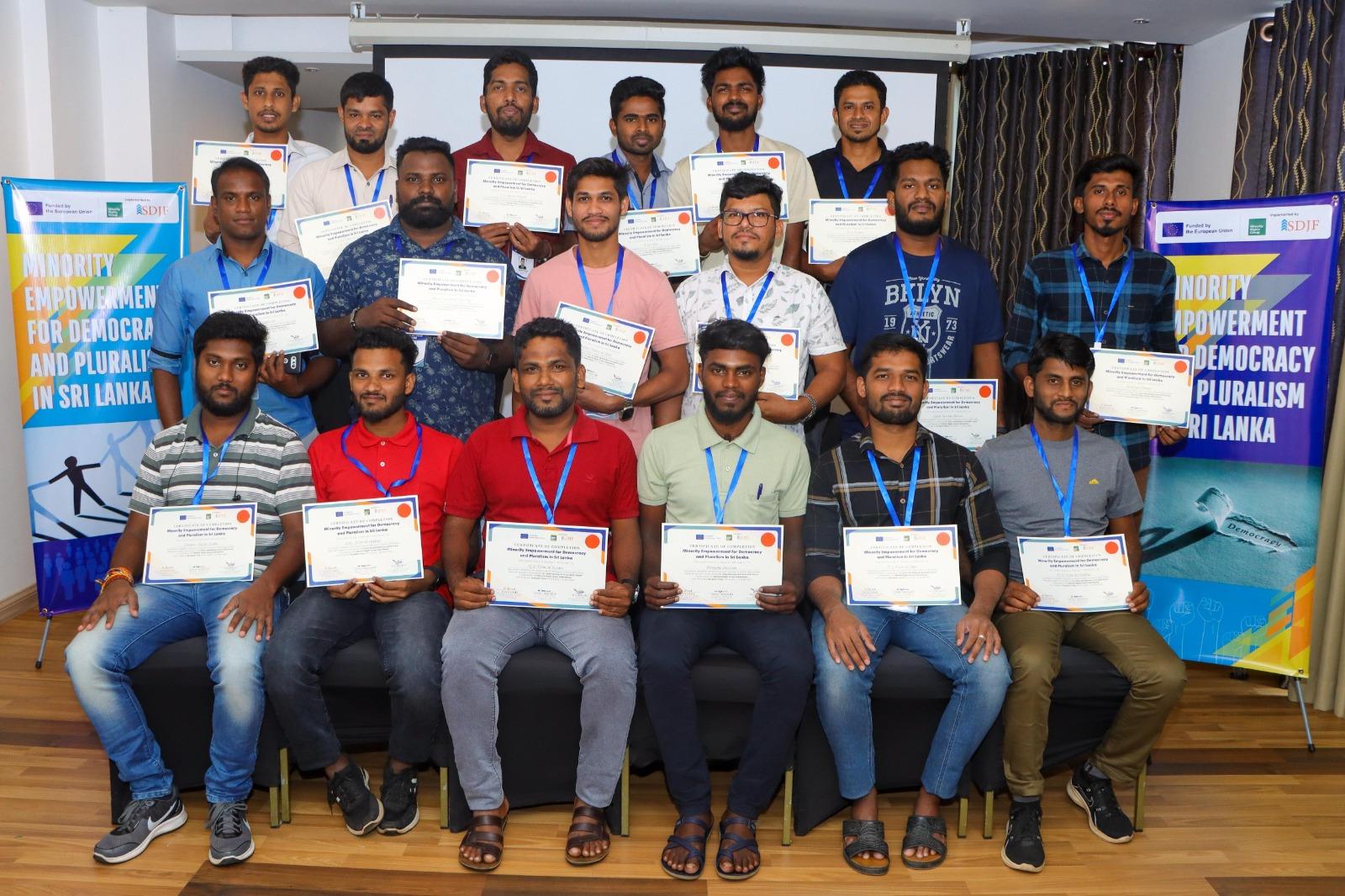
As Sri Lanka enters a pivotal election period, the role of responsible journalism has never been more crucial. Our recent training program, supporting the Media Empowerment for Democracy Program (MEDP), equips young journalists with the skills needed to cover elections fairly, responsibly, and inclusively. Through in-depth sessions on electoral reporting, combating hate speech, and amplifying minority voices, these journalists are now ready to help foster an informed, unified Sri Lanka. Together, we’re building a media landscape that strengthens democracy and ensures every community is represented with integrity.
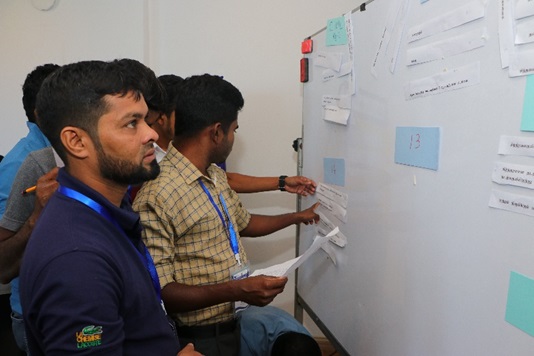
A group of 18 young journalists from across Sri Lanka has embarked on a transformative journey. These emerging voices, hailing from Batticaloa, Trincomalee, Monaragala, Puttalam, Mannar, and Nuwara Eliya, recently completed a specialized fellowship training program focused on ethical journalism and minority representation. Funded by the European Union and facilitated by Minority Rights Group International alongside the Sri Lanka Development Journalist Forum, the program provided these young media professionals with a strong foundation to navigate the challenges of today’s media environment responsibly.
At its core, this training program was designed to empower participants with the knowledge and skills needed to uphold ethical standards, ensure accountability, and foster inclusivity in their work. The curriculum, structured around critical areas of journalism, encouraged these young professionals to deepen their understanding of media’s role in society. As advocates for truth and representation, these journalists were guided through rigorous sessions, gaining insight into the complex relationship between media and societal change.
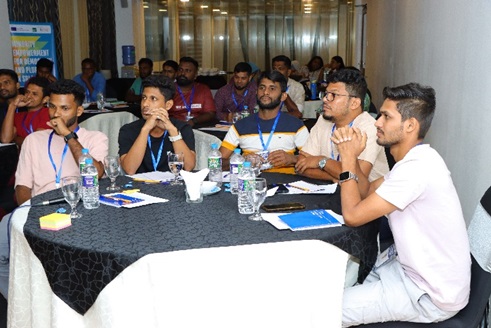
The program also emphasized the importance of diverse perspectives. With participants representing various communities and regions, the training underscored the need for a media landscape that includes all voices, particularly those of minorities. Through their unique backgrounds and experiences, these journalists are now better equipped to capture and communicate the rich tapestry of Sri Lankan society.
Each session within the program covered essential aspects of journalism that today’s professionals must master to be effective advocates for truth and inclusivity. Explore the core areas of focus:
Social Responsibilities of Journalists
The program began with discussions on the fundamental social responsibilities of journalists. This module encouraged fellows to reflect on the influence they wield through their reporting and the ethical considerations that accompany this responsibility. By understanding journalism’s impact on public opinion and social justice, participants explored ways to cover sensitive topics with empathy, accuracy, and integrity. This segment laid the groundwork for understanding the broader purpose of media in shaping a fair and informed society.
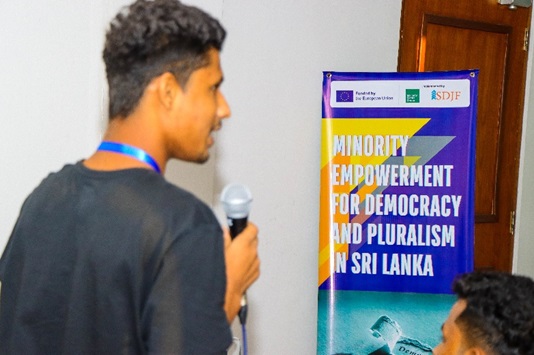
National and International Legal Frameworks for Media
An essential aspect of responsible journalism is an understanding of the legal parameters within which journalists operate. In this session, fellows explored both national and international laws protecting freedom of expression, press freedom, and human rights. From Sri Lanka’s specific media laws to international protocols protecting freedom of speech, participants learned about the legal rights and limitations governing their work. These insights equip journalists to advocate for press freedom responsibly while remaining within ethical and legal boundaries.
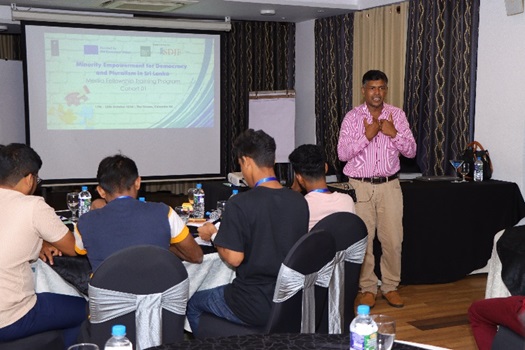
Responsible Reporting and Accountability
Responsible reporting is a critical principle of journalism, ensuring that information shared with the public is factual, balanced, and accurate. This module highlighted the need for journalists to practice transparency and maintain accountability to their audience. Through real-world case studies, participants learned about the effects of misinformation and the importance of thorough research and fact-checking. By understanding the weight of their words, these young journalists are now better prepared to uphold high standards of accountability and credibility in their work.
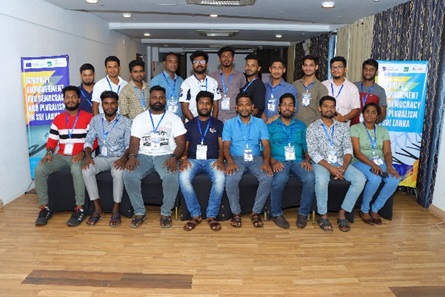
Media and Minority Rights

In a diverse nation like Sri Lanka, the representation of minority groups in media is paramount. This session focused on the responsibilities journalists hold in protecting and amplifying the voices of minority communities. Fellows explored how to report on issues affecting marginalized groups, ensuring their perspectives are heard and represented fairly. Through this module, the participants learned to challenge stereotypes, advocate for equality, and address the unique challenges faced by minorities. This training underscored the media’s potential to bridge gaps and foster understanding in society.
Electoral Process and Electoral Violence in Sri Lanka
With elections often stirring strong emotions and divisions, it’s crucial for journalists to cover the electoral process fairly and responsibly. This session provided an in-depth look at Sri Lanka’s electoral cycle and the media’s role during elections. The fellows were trained to report on electoral issues without bias, understand the electoral process, and be aware of how media can both influence and be affected by political events. Special emphasis was placed on the risks of electoral violence and the importance of non-partisan reporting during such times, equipping journalists with the skills to handle election-related stories responsibly.
Handling Hate Speech and Protecting Minorities During Elections
One of the more sensitive topics addressed in the program was hate speech, particularly against minority groups during election periods. Participants learned about the harmful impact of hate speech and the critical role journalists play in preventing its spread. Through guided discussions, they explored methods for recognizing and countering hate speech, crafting stories that inform and educate rather than inflame. This training also provided strategies for protecting minority communities from targeted misinformation, helping journalists understand their duty to promote respectful dialogue and social cohesion.
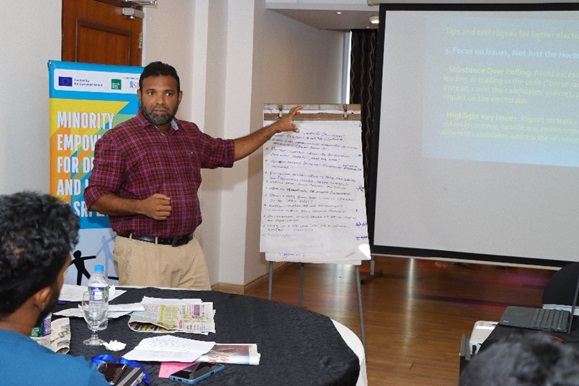
Citizen Journalism and Social Media for Minority Issues
With the rise of digital platforms, citizen journalism has become a powerful tool for marginalized voices. In this session, fellows were introduced to the principles of citizen journalism, learning how to effectively leverage social media to elevate minority issues. Practical tips on content creation, audience engagement, and digital ethics were shared, empowering these young journalists to use online platforms as spaces for advocacy and change. This segment of the training underscored the role of social media in fostering inclusive dialogue and creating awareness about underreported issues.
Throughout the training, participants had the opportunity to learn from some of Sri Lanka’s most respected media experts. These mentors provided valuable insights, sharing their experiences and lessons from their own careers in journalism. Through interactive sessions, the fellows were encouraged to ask questions, engage in discussions, and think critically about the challenges and opportunities in today’s media landscape.
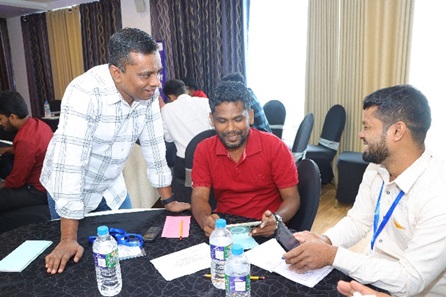
The guidance from seasoned journalists not only enhanced the fellows’ technical skills but also offered real-world advice on navigating the industry’s ethical dilemmas. This mentorship component played a significant role in helping these young professionals develop a strong moral compass as they embark on their careers in media.
As these 18 young journalists return to their communities, they are well-prepared to make a meaningful impact on Sri Lanka’s media. Armed with the tools and insights gained from the training, they are now ready to promote inclusive storytelling, amplify minority voices, and uphold the principles of ethical journalism. By telling stories that resonate with their communities and challenge stereotypes, these journalists are setting the stage for a more empathetic and representative media landscape.
Their commitment to responsible reporting is not only a professional milestone but also a personal pledge to serve their communities with integrity. Through their work, they will champion truth, advocate for underrepresented groups, and contribute to a society that values inclusivity and respect for all.
The success of this training program marks an important step toward fostering a new generation of journalists who prioritize ethics and inclusivity. Supported by the European Union, Minority Rights International, and the Sri Lanka Development Journalist Forum, these young professionals are now part of a broader movement to ensure that Sri Lanka’s media landscape remains a force for positive change.

With their skills in responsible reporting, understanding of media law, and commitment to minority representation, these journalists are well-equipped to navigate the complexities of their field. As they continue to grow, their work will inspire a more inclusive and compassionate approach to journalism, empowering communities and setting a new standard for media in Sri Lanka.
All copy rights reserved-2024
Latest News

SDJF and MIM Launch Sri Lanka’s First Certificate Course on Ethical Reporting and Minority Protectio
27 February 2025
[ Read More ]

Kicking off 2025 with positivity and teamwork!
3 January 2025
[ Read More ]

SDJF Partners with HELVETAS to Launch EMPOWER: Tackling Youth Radicalization and Building Resilience
10 December 2024
[ Read More ]

SDJF Concludes Successful Annual General Meeting 2024
30 November 2024
[ Read More ]
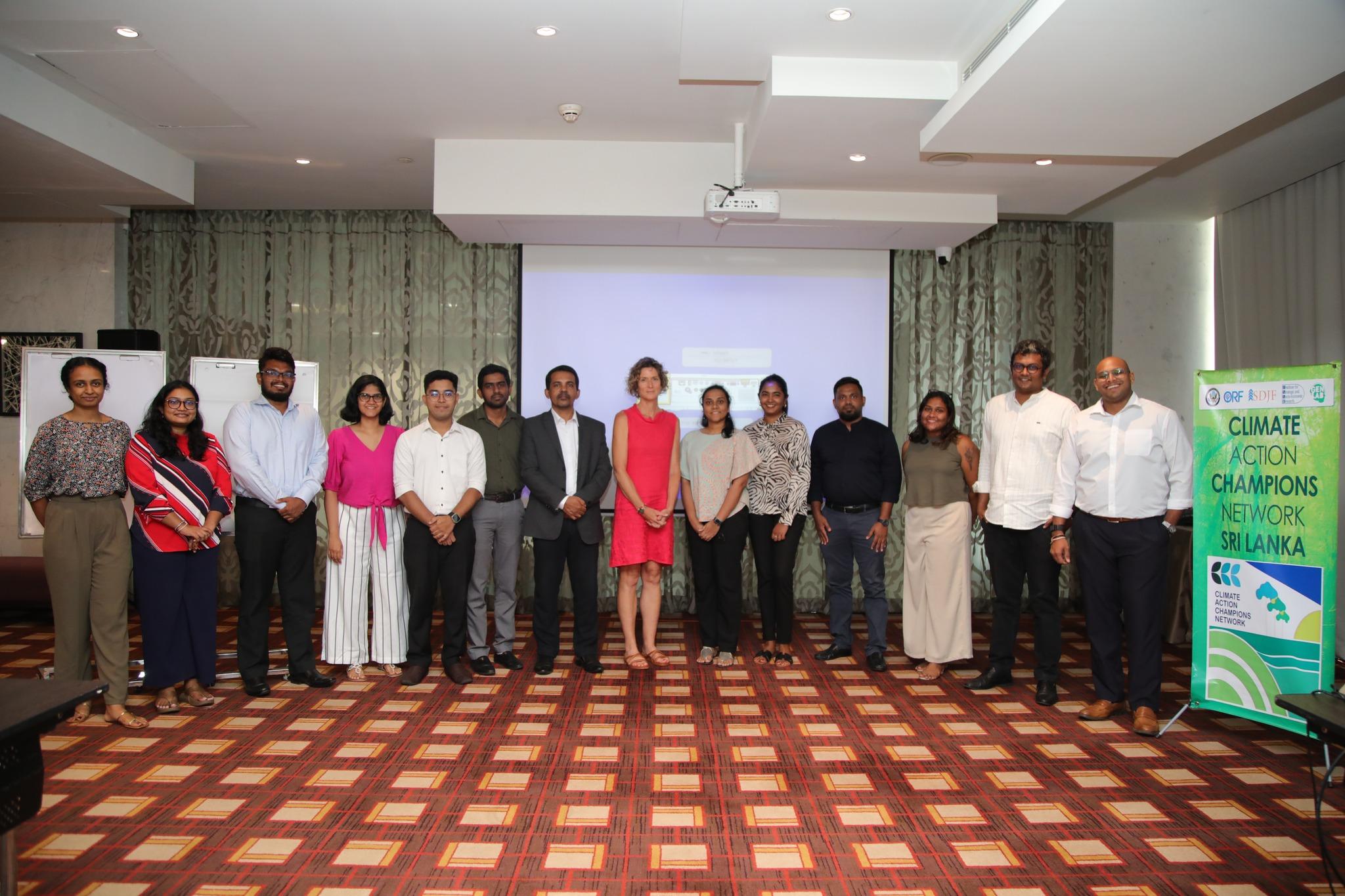
Celebrating the Journey and Impact of the Climate Action Champions Network
14 July 2024
[ Read More ]